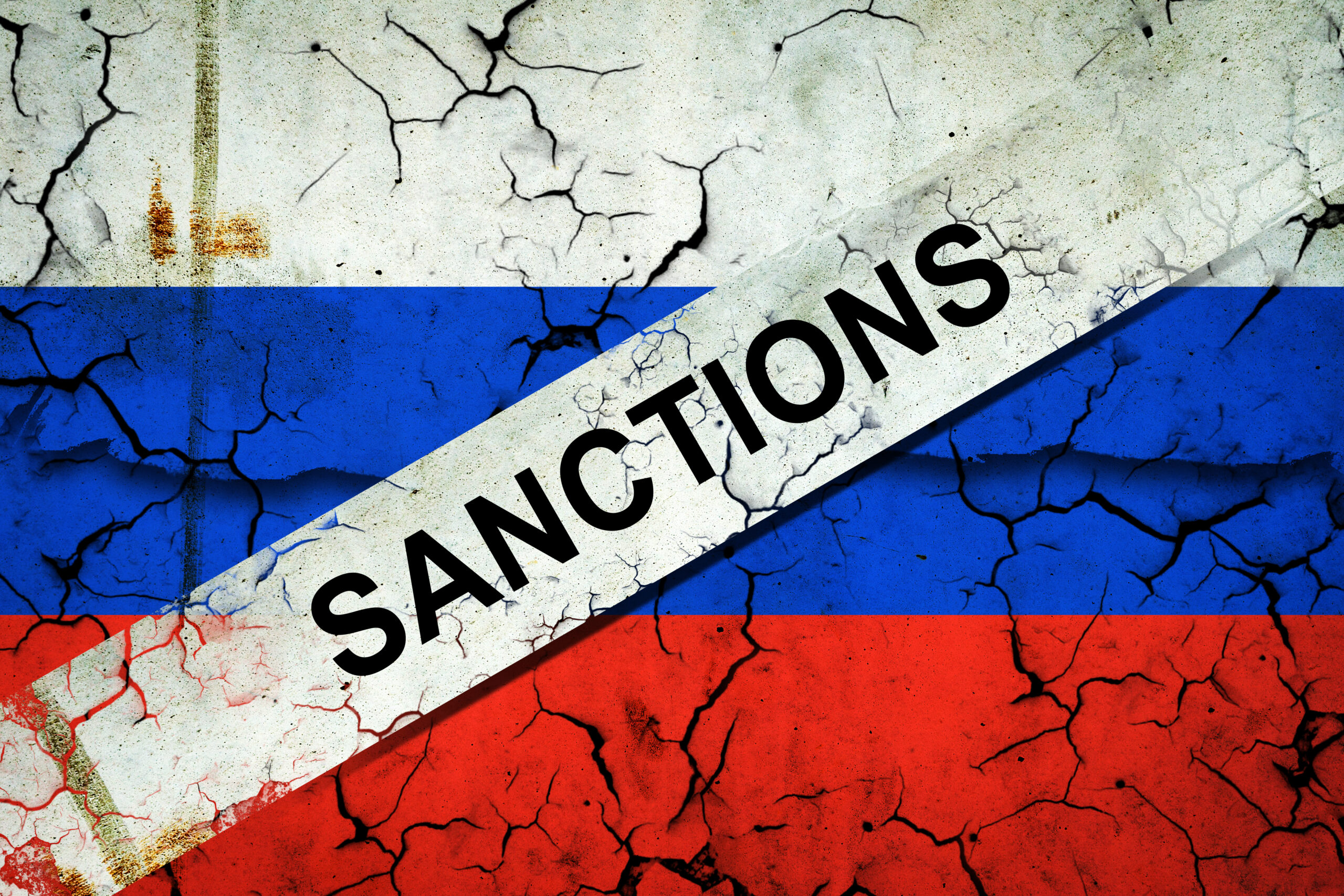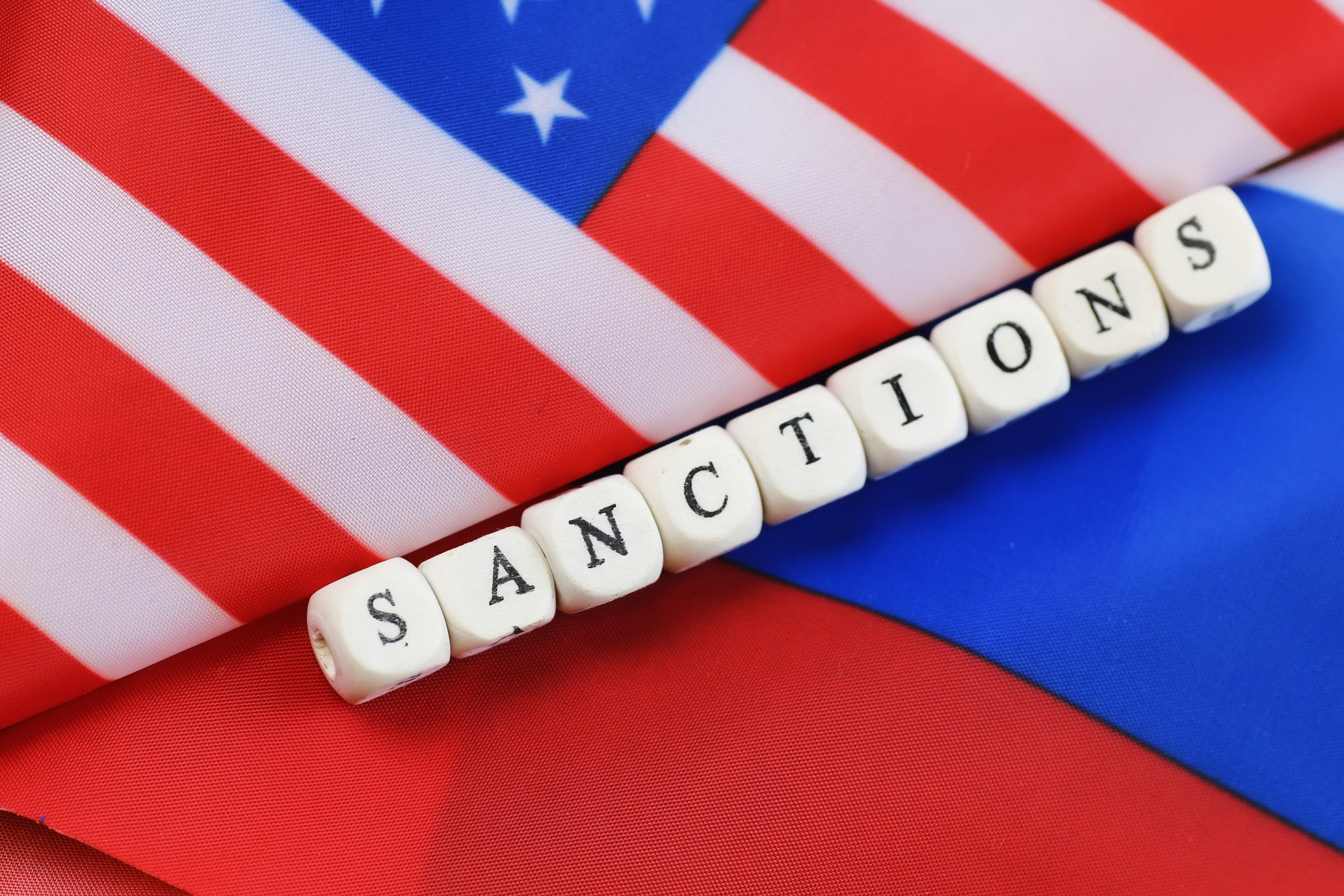Russia Sanctions: Economic and Diplomatic Measures for Conflict
Russia's actions in Ukraine have been met with widespread condemnation, and many countries have imposed sanctions on the country.
The sanctions are designed to put pressure on Russia to change its behavior, and they have already had a significant impact on the Russian economy. The ruble has plummeted in value, and inflation is soaring. Many foreign companies have suspended their operations in Russia, and the country is facing a growing shortage of essential goods.
The sanctions are also having a significant impact on Russia's diplomatic relations with other countries. Many countries have expelled Russian diplomats, and Russia has been suspended from several international organizations.
The sanctions are a clear sign that the international community is united in its opposition to Russia's aggression. The sanctions are having a significant impact on Russia, and they are likely to continue until Russia changes its behavior.
| Sanction | Description |
|---|---|
| Economic sanctions | These sanctions restrict Russia's access to global financial markets and limit its ability to import and export goods. |
| Diplomatic sanctions | These sanctions include the expulsion of Russian diplomats and the suspension of Russia from international organizations. |
The sanctions are a complex and evolving issue. It is important to stay up-to-date on the latest developments, and to consult with experts for the most accurate information.
This article is intended for informational purposes only, and should not be considered financial advice.
FAQ
This FAQ section provides concise answers to frequently asked questions regarding the comprehensive economic and diplomatic measures imposed on Russia Sanctions: Comprehensive Guide To Economic And Diplomatic Measures in response to its actions.

Russia’s RusChemAlliance Sues 5 European Banks Over Aborted Gas Project - Source www.insurancejournal.com
Question 1: What are the primary objectives of the sanctions against Russia?
The sanctions aim to deter further aggression, weaken Russia's economy, limit its access to advanced technologies, and isolate it diplomatically.
Question 2: Which countries have imposed sanctions on Russia?
Numerous countries, including the United States, the European Union, the United Kingdom, Canada, and Japan, have implemented sanctions.
Question 3: What specific sectors are targeted by the sanctions?
Sanctions target Russia's financial system, energy sector, defense industry, and key individuals and entities.
Question 4: How have the sanctions affected Russia's economy?
The sanctions have caused economic disruption, currency devaluation, and a decline in GDP.
Question 5: What are the potential consequences of the sanctions for the global economy?
The sanctions may lead to higher energy and commodity prices, disruptions in supply chains, and reduced economic growth.
Question 6: What diplomatic measures have been taken against Russia?
Diplomatic measures include the suspension of Russia from the Council of Europe and the G8, the expulsion of Russian diplomats, and the cancellation of high-level meetings.
The sanctions and diplomatic measures imposed on Russia aim to pressure the state to change its course of action, while minimizing their impact on the global economy. The effectiveness and consequences of these measures remain to be seen.
Tips
Strategies to adapt and succeed under the current Russia sanctions:
Tip 1: Monitor the situation closely and stay informed.
Stay updated with the latest sanctions and their implications for your business. Read official government announcements, consult trustworthy news sources, and seek expert advice to make informed decisions.
Tip 2: Explore alternative suppliers and markets.
Diversify your supply chain and customer base to reduce reliance on Russian markets. Seek partnerships with suppliers and customers in other regions to mitigate disruption and maintain business continuity.
Tip 3: Adjust production and operations.
Optimize production processes and operations to minimize the impact of sanctions. Explore alternative sourcing of raw materials, adjust production schedules, and consider outsourcing to bypass restrictions.
Tip 4: Leverage technology for remote work and collaboration.
Utilize video conferencing, collaboration platforms, and remote work solutions to maintain communication and productivity with colleagues and partners. This is especially important for businesses with operations in or involving Russia.
Tip 5: Seek legal and professional advice.
Consult legal advisors and industry experts to ensure compliance with sanctions regulations and mitigate potential risks. Seek guidance on navigating complex legal and financial implications to minimize disruption to business operations.
By implementing these tips, businesses and organizations can navigate the challenges posed by Russia sanctions, adapt to the changing business landscape, and emerge stronger in the face of adversity.
Russia Sanctions: Comprehensive Guide To Economic And Diplomatic Measures
Understanding the multifaceted nature of Russia sanctions requires a comprehensive examination of various aspects, from their economic implications to diplomatic responses. Exploring these key dimensions provides a more nuanced grasp of the complex dynamics surrounding these measures.
- Trade Restrictions: Embargoes on Russian goods, limiting imports and exports.
- Financial Penalties: Freezing assets, blocking transactions, and disconnecting Russian banks from global financial systems.
- Diplomatic Isolation: Suspending or downgrading diplomatic relations, withdrawing ambassadors, and limiting international cooperation.
- Energy Security: Restrictions on Russian oil and gas exports, affecting global energy markets and prices.
- Travel Bans: Prohibiting Russian officials, diplomats, and individuals from traveling to certain countries.
- Cybersecurity Measures: Joint efforts to combat Russian cyber threats, enhancing international cybersecurity.
ევროპული სანქციების გამო რუსეთის სავაჭრო პოლიტიკა სუსტდება - Source www.businessinsider.ge
Sanctions are multifaceted tools employed to exert pressure on Russia for its actions. Trade restrictions and financial penalties aim to cripple its economy, while diplomatic isolation and travel bans target its political and diplomatic elite. Energy security concerns shape sanctions related to oil and gas exports, and cybersecurity measures address the threat posed by Russian cyber activities. Together, these aspects provide a comprehensive understanding of Russia sanctions, highlighting their economic, political, and geopolitical implications.
Russia Sanctions: Comprehensive Guide To Economic And Diplomatic Measures
The document titled "Russia Sanctions: Comprehensive Guide To Economic And Diplomatic Measures" provides an in-depth look at the sanctions imposed on Russia in response to its annexation of Crimea and its involvement in the conflict in eastern Ukraine. The sanctions have been implemented by the United States, the European Union, and other countries, and they have had a significant impact on the Russian economy. The guide provides a detailed overview of the sanctions, including their history, their scope, and their impact. It also discusses the diplomatic efforts that have been made to resolve the conflict in Ukraine and the challenges that remain.

Taking Stock of U.S. Sanctions on Russia - Foreign Policy Research - Source www.fpri.org
The sanctions have had a significant impact on the Russian economy. The Russian ruble has lost value, inflation has increased, and economic growth has slowed. The sanctions have also made it difficult for Russia to access international capital markets, and they have led to a decline in foreign investment. The sanctions have also had a negative impact on the Russian people. Many Russians have lost their jobs, and the cost of living has increased. The sanctions have also made it difficult for Russians to travel abroad.
The diplomatic efforts to resolve the conflict in Ukraine have been unsuccessful. The Minsk agreements, which were signed in 2014 and 2015, have not been implemented, and the fighting in eastern Ukraine continues. The United States and the European Union have both called for Russia to withdraw its support for the separatists in eastern Ukraine, but Russia has refused. The conflict in Ukraine is a complex issue, and there is no easy solution. The sanctions have not been able to force Russia to change its behavior, and the diplomatic efforts have not been able to resolve the conflict.
The "Russia Sanctions: Comprehensive Guide To Economic And Diplomatic Measures" provides a valuable overview of the sanctions that have been imposed on Russia and the diplomatic efforts that have been made to resolve the conflict in Ukraine. The guide is a valuable resource for anyone who wants to understand the current situation in Ukraine.
| Sanction | Description | Impact |
|---|---|---|
| Asset freeze | Freezes the assets of designated individuals and entities. | Prevents sanctioned individuals and entities from accessing their assets and conducting financial transactions. |
| Travel ban | Prohibits designated individuals from entering or transiting the territory of the sanctioning country. | Prevents sanctioned individuals from traveling for business or pleasure, and makes it difficult for them to maintain international contacts. |
| Arms embargo | Prohibits the sale or transfer of weapons and military equipment to a designated country. | Prevents the designated country from acquiring weapons and military equipment, and weakens its military capabilities. |
| Trade embargo | Prohibits the import or export of goods or services to or from a designated country. | Disrupts trade flows, damages the economy of the designated country, and makes it difficult for it to obtain essential goods and services. |
| Financial sanctions | Prohibits or restricts financial transactions with a designated country or its citizens. | Makes it difficult for the designated country to access international capital markets, and weakens its financial system. |
Conclusion
The sanctions imposed on Russia in response to its annexation of Crimea and its involvement in the conflict in eastern Ukraine have had a significant impact on the Russian economy. The sanctions have also made it difficult for Russia to access international capital markets, and they have led to a decline in foreign investment. The sanctions have also had a negative impact on the Russian people. Many Russians have lost their jobs, and the cost of living has increased. The sanctions have also made it difficult for Russians to travel abroad.
The diplomatic efforts to resolve the conflict in Ukraine have been unsuccessful. The Minsk agreements, which were signed in 2014 and 2015, have not been implemented, and the fighting in eastern Ukraine continues. The United States and the European Union have both called for Russia to withdraw its support for the separatists in eastern Ukraine, but Russia has refused. The conflict in Ukraine is a complex issue, and there is no easy solution. The sanctions have not been able to force Russia to change its behavior, and the diplomatic efforts have not been able to resolve the conflict.
The "Russia Sanctions: Comprehensive Guide To Economic And Diplomatic Measures" provides a valuable overview of the sanctions that have been imposed on Russia and the diplomatic efforts that have been made to resolve the conflict in Ukraine. The guide is a valuable resource for anyone who wants to understand the current situation in Ukraine.
إرسال تعليق